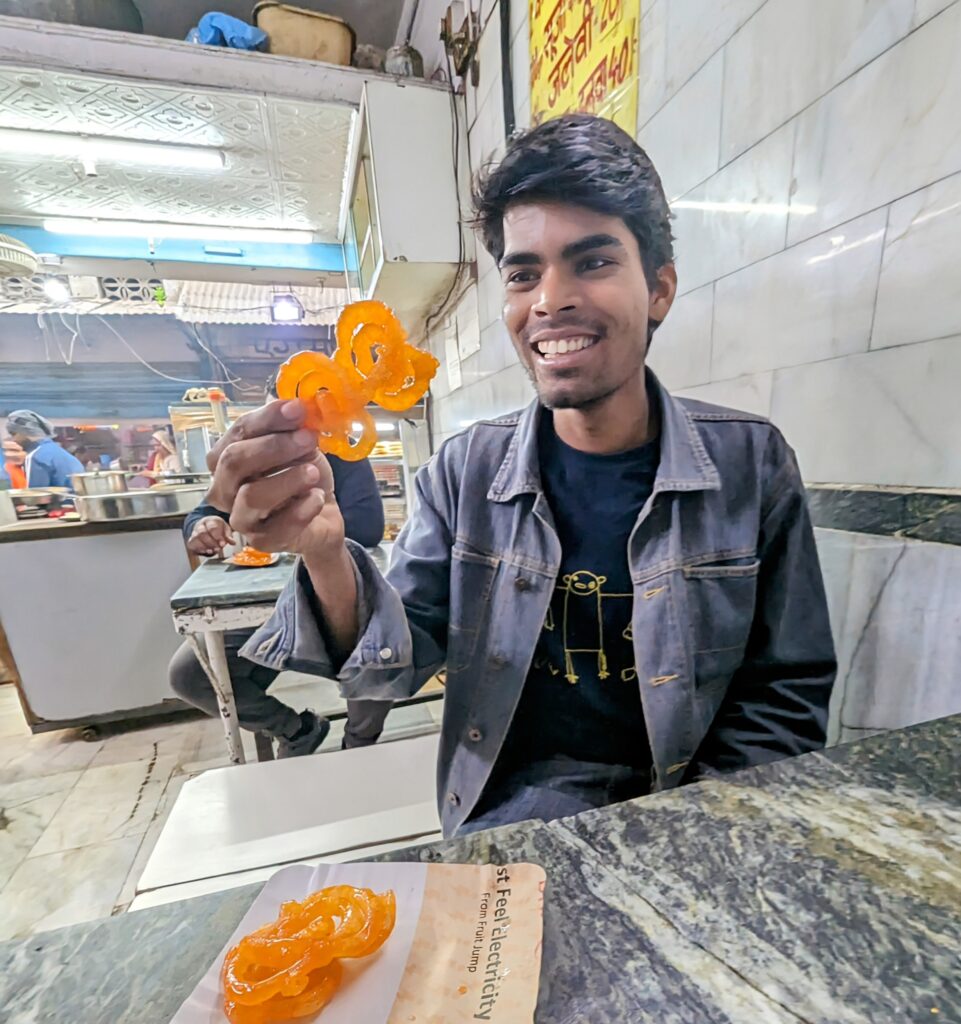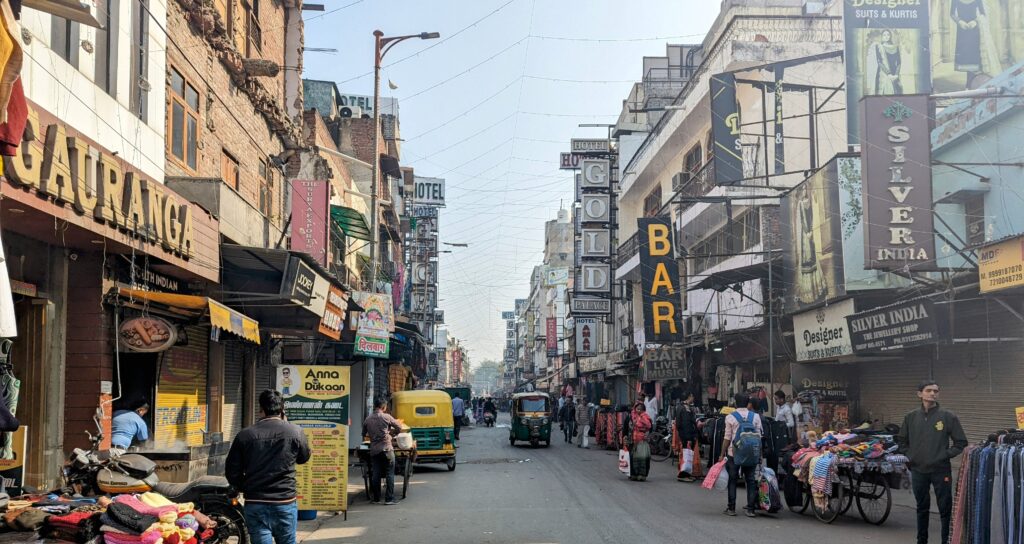Salaam Baalak literally translates to ‘Salutes a Child’, the name and mantra of a non-profit trust in India’s capital that has been supporting street children of the city for over 35 years.
During a recent visit to Delhi, I was privileged to visit and spend time with the team at the Salaam Baalak Trust (SBT) to learn more about its community tourism initiative, which trains and employs young adults to be city tour guides.
The walking tours offer visitors the chance not only to see some of the city sites, but gain an insight into street life in Delhi from the perspective of their guides.
Meeting me on arrival was guide Ajay and his beaming smile.
‘Delhi is the best city. In 10 years, it has given me so much’, he says.
He loves the vibrancy, the history, the arts scene, the markets and the people, and is knowledgeable about the city he now calls home. His enthusiasm is infectious.

“Ajay was first supported by the SBT as a 12-year-old runaway”
Ajay was first supported by the SBT as a 12-year-old runaway. Now 22, he talked me through the operations of the charitable organisation as we strolled through the busy lanes around the New Delhi Railway Station.
The station is the second busiest in the country (Kolkata tops that list), with 16 platforms and hundreds of trains a day arriving, departing and passing through the station. As we look up at the information board, there are literally trains coming and going every few minutes.


It’s here, next to one of the station’s chaotic entrances, that the SBT opened its first centre.
Ajay told me that the station was one of the areas he found refuge when he was living on Delhi’s streets and that the trains were good pickings for food and ‘work’.
He said he would eat food that rail passengers had left behind and would collect all of the empty plastic bottles to sell at the recycling market opposite the station.
‘I could earn anything from 100 rupees to 1000 rupees (£1 – £10) a day’.
‘What do you think I spent my money on?’ ‘Jalebi and Bollywood movies!’ he laughed.
Jalebi is a sticky sweet treat made by deep-frying batter and soaking it in sugary syrup. As we walked through the recycling market on our way to try some jalebi, we passed by an elderly lady and her husband who lived in the market and made small clay tealight candle holders to sell. The husband was busy softening the clay with his bare feet preparing it for the next batch of candle holders, while she was giving a teenager a good ticking off. Ajay said the lady had been in that same spot for as long as he could remember, and all of the kids called her mother.
“…in 1988 with three staff supporting 25 children, the SBT now employs 300 staff who annually support over 10,000 children.”
Ajay’s story
Ajay is a positive light in what is a story of real resilience and determination.
He left his home in Nepal when he was just 12 after conflict with his father.
‘I had a piggy bank, just like that one’, he pointed to a stall that was selling a variety of clay goods as we continued through the markets.
Ajay had his sights set on Delhi with the hope, like many others, of finding a better life.
Once across the border, he used India’s rail network to make his way to Delhi.
He was sitting in a corner in the station when two social workers from the SBT approached him.
He was accommodated in one of the shelter homes, but found the daily routine too structured, left and spent almost 3-years on the streets fending for himself, before returning to the safety and support of the SBT at age 15.
Inspiration behind the charity
The inspiration behind the Salaam Baalak Trust was the award-winning film Salaam Bombay! directed by Mira Nair, a fictional film that chronicled the lives of street children in Bombay’s slums. During the filming Nair worked with many street children.
Not all of Delhi’s street children are runaways. The circumstances are wide and varied. While many do runaway to escape conflict or abuse, others find themselves in the situation due to trafficking, many also live on the streets with their families, often having travelled to the city to seek work, and some children are simply lost after being separated from their parents on busy station platforms.
From its humble beginnings in 1988 with three staff supporting 25 children, the SBT now employs 300 staff who annually support over 10,000 children through various outreach, counselling and education programmes, medical support, accommodation with seven shelter homes (two for girls
and five for boys) accommodating 600, nine touch points around the city and an emergency child line.
SBT provides countless opportunities for the children within its care to study and undertake vocational training. Through the city guide training programme, more than 100 young people have worked as tour guides to date.
Along with guiding the city walks, Aja is qualifying as a certified Incredible India Tourism guide. Supported by SBT to study for a Bachelor of Arts degree in Hindi Literature, he has also been attending film-makers workshops and has an ambition to become a Bollywood actor. There is just no stopping this remarkable young man.
Coming full circle, he goes back to Nepal regularly to visit his family, whom he now gets along well with.
Wild Frontiers supports a wide variety of community tourism initiatives within its small group tours and tailor-made holiday itineraries, providing unique, deeper travel experiences while giving back to those we visit.
Salaam Baalak Trust city walking tours can be experienced on our tailor-made holidays to India.
India Tours | Undiscovered Rajasthan | Wild Frontiers (wildfrontierstravel.com)

